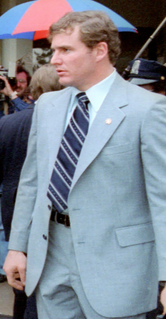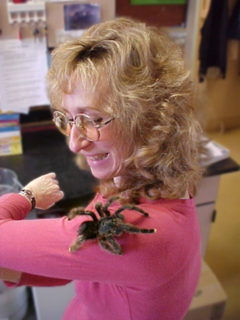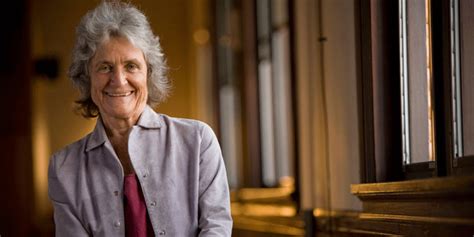A Quote by J. M. Coetzee
If it is indeed impossible - or at least very difficult - to inhabit the consciousness of an animal, then in writing about animals there is a temptation to project upon them feelings and thoughts that may belong only to our own human mind and heart.
Related Quotes
They have no consciousness therefore. Therefore what? Therefore we are free to use them for our own ends? Therefore we are free to kill them? Why? What is so special about the form of consciousness we recognize that makes killing a bearer of it a crime while killing an animal goes unpunished?...all this discussion of consciousness and whether animals have it is just a smokescreen. At bottom we protect our own kind. Thumbs up to human babies, thumbs down to veal calves.
My view is that consciousness, the seat of "personalness," is the ultimate reality, and is also scientifically impenetrable. In other words, there is no scientific test one can postulate that would definitively prove its existence in another entity. We assume that other biological human persons, at least those who are at least acting conscious, are indeed conscious. But this too is an assumption, and this shared human consensus breaks down when we go beyond human experience (e.g., the debate on animal consciousness, and by extension animal rights).
We do not belong to this material world that science constructs for us. We are not in it; we are outside. We are only spectators. The reason why we believe that we are in it, that we belong to the picture, is that our bodies are in the picture. Our bodies belong to it. Not only my own body, but those of my friends, also of my dog and cat and horse, and of all the other people and animals. And this is my only means of communicating with them.
When we stop fighting with ourselves, we aren't creating anymore conflict in our mind. Then our mind can for the first time relax and be still. Then for the first time our consciousness can become whole and unfragmented. Then total attention can be given to all of our thoughts and feelings. And then there will be found a gentleness and a goodness in us that can embrace all that is been given in the world. Then a deep love for everything will be the result of this deep attention. For this total attention, this soft and pure consciousness that we are, is nothing but Love itself.
The memories which peaceful country scenes call up, are not of this world, nor of its thoughts and hopes. Their gentle influence may teach us how to weave fresh garlands for the graves of those we loved: may purify our thoughts, and bear down before it old enmity and hatred; but beneath all this, there lingers, in the least reflective mind, a vague and half-formed consciousness of having held such feelings long before, in some remote and distant time, which calls up solemn thoughts of distant times to come, and bends down pride and worldliness beneath it.
The social scientist is in a difficult, if not impossible position. On the one hand there is the temptation to see all of society as one's autobiography writ large, surely not the path to general truth. On the other hand, there is the attempt to be general and objective by pretending that one knows nothing about the experience of being human, forcing the investigator to pretend that people usually know and tell the truth about important issues, when we all know from our own lives how impossible that is.
When things go wrong in our life and we encounter difficult situations, we tend to regard the situation itself as our problem, but in reality whatever problems we experience come from the side of the mind. If we were to respond to difficult situations with a positive or peaceful mind they would not be problems for us; indeed, we may even come to regard them as challenges or opportunities for growth and development. Problems arise only if we respond to difficulties with a negative state of mind. Therefore, if we want to be free from problems, we must transform our mind.
I want to put it back together now, this artistic expression that contains religious feeling. I want to investigate: What was the origin? What's happened in the human mind? Can we trace back the moment of the creation of human consciousness? And why did only humans gain consciousness, not other animals? So, evolution? I don't know whether or not I can believe evolution. Maybe we wait for another 100,000 years and then apes get consciousness.
Anthropomorphism is such an interesting concept. It means projecting human thoughts and emotions onto an animal. Which implies that thoughts and feelings belong to humans alone. Of course, if you believe in evolution, or if you believe in the Bible, that's not so. Both evolution and the Bible tell us that we're part of a family.
What I have learned from the teachers with whom I have worked is that, just as there is no simple solution to the arms race, there is no simple answer to how to work with children in the classroom. It is a matter of being present as a whole person, with your own thoughts and feelings, and of accepting children as whole people, with their own thoughts and feelings. It's a matter of working very hard to find out what those thoughts and feelings are, as a starting point for developing a view of a world in which people are as much concerned about other people security as they are about their own





































